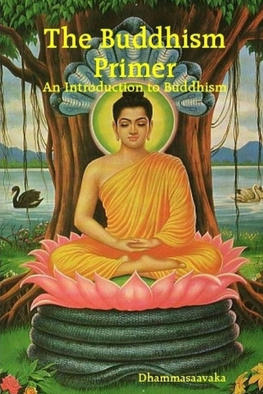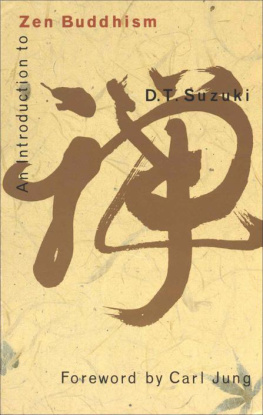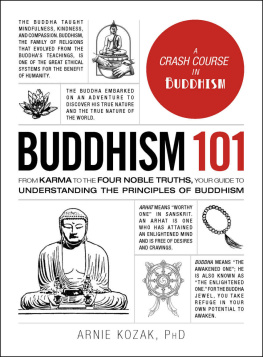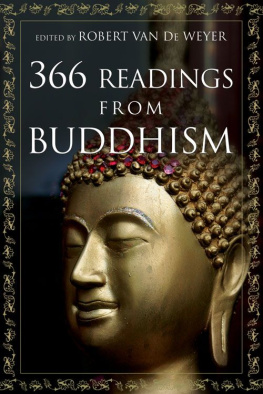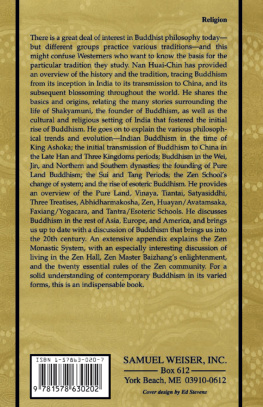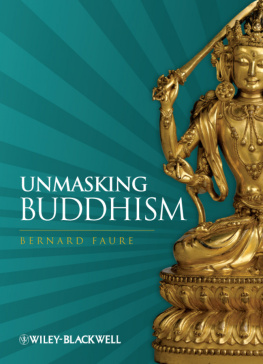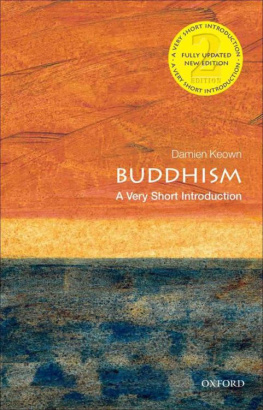Dhammasaavaka Robert John Mestre - The Buddhism Primer : An Introduction to Buddhism
Here you can read online Dhammasaavaka Robert John Mestre - The Buddhism Primer : An Introduction to Buddhism full text of the book (entire story) in english for free. Download pdf and epub, get meaning, cover and reviews about this ebook. genre: Politics. Description of the work, (preface) as well as reviews are available. Best literature library LitArk.com created for fans of good reading and offers a wide selection of genres:
Romance novel
Science fiction
Adventure
Detective
Science
History
Home and family
Prose
Art
Politics
Computer
Non-fiction
Religion
Business
Children
Humor
Choose a favorite category and find really read worthwhile books. Enjoy immersion in the world of imagination, feel the emotions of the characters or learn something new for yourself, make an fascinating discovery.
- Book:The Buddhism Primer : An Introduction to Buddhism
- Author:
- Genre:
- Rating:5 / 5
- Favourites:Add to favourites
- Your mark:
- 100
- 1
- 2
- 3
- 4
- 5
The Buddhism Primer : An Introduction to Buddhism: summary, description and annotation
We offer to read an annotation, description, summary or preface (depends on what the author of the book "The Buddhism Primer : An Introduction to Buddhism" wrote himself). If you haven't found the necessary information about the book — write in the comments, we will try to find it.
The Buddhism Primer : An Introduction to Buddhism — read online for free the complete book (whole text) full work
Below is the text of the book, divided by pages. System saving the place of the last page read, allows you to conveniently read the book "The Buddhism Primer : An Introduction to Buddhism" online for free, without having to search again every time where you left off. Put a bookmark, and you can go to the page where you finished reading at any time.
Font size:
Interval:
Bookmark:
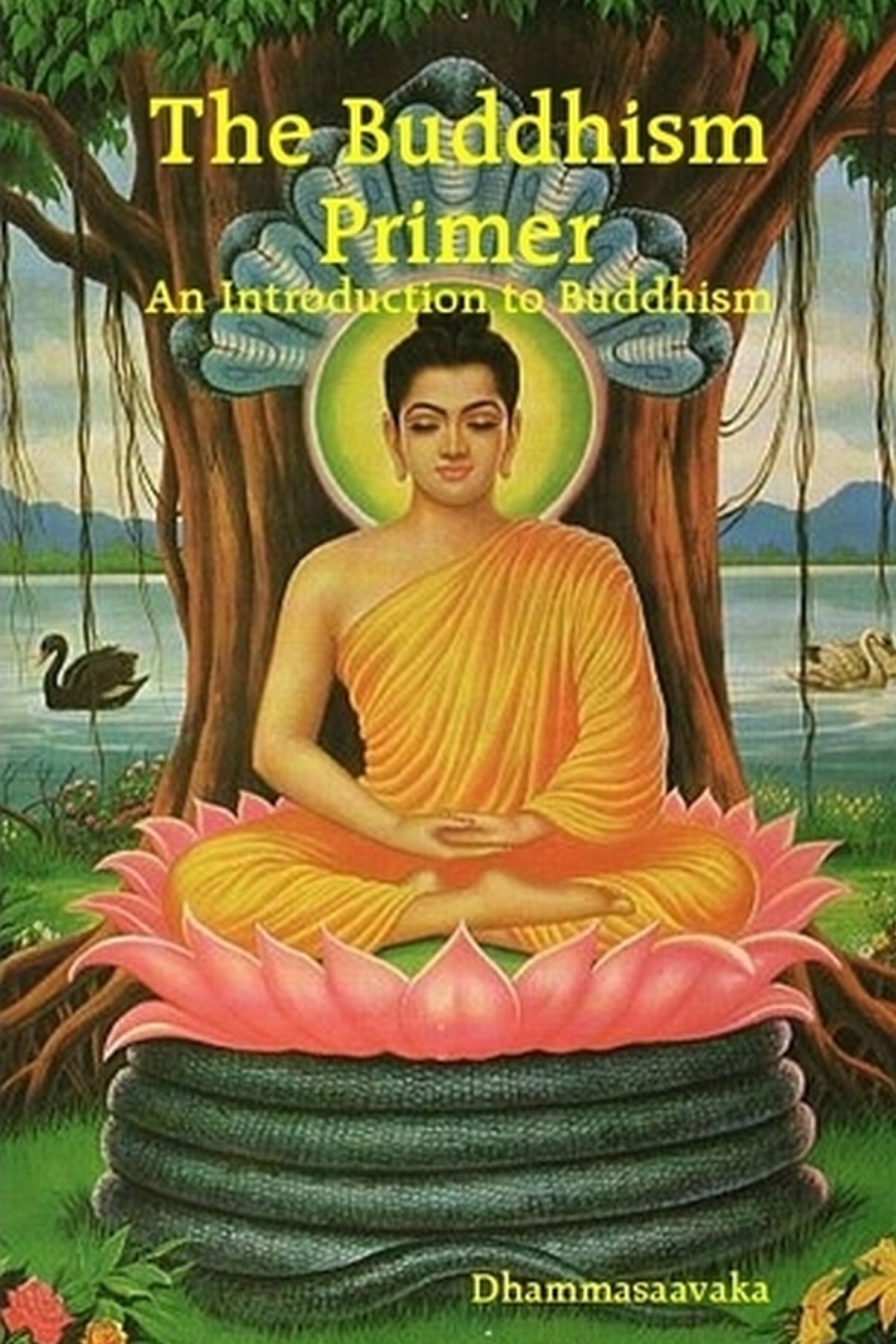
Wikipedia , the free encyclopedia
Venerable S. Dhammikas Good Questions Good Answers
Kamma A Study Guide prepared by Thanissaro Bhikkhu
The Threefold Lotus Sutra (Kosei Publishing, Tokyo 1975), tr. by B. Kato, Y. Tamura, and K. Miyasaka, revised by W. Soothill, W. Schiffer, and P. Del Campana The Mahayana Mahaparinirvana Sutra (Nirvana Publications, London, 1999-2000), tr. by K. Yamamoto, ed. and revised by Dr. Tony Page
The Sovereign All-Creating Mind: The Motherly Buddha (Sri Satguru Publications, Delhi 1992), tr. by E.K. Neumaier-Dargyay
Buddha - The Compassionate Teacher (2002), by K.M.M.Swe
Paul Williams, Mahayana Buddhism , Routledge, 1989
Schopen, G. The inscription on the Kusan image of Amitabha and the character of the early Mahayana in India, Journal of the International Association of Buddhist
Studies 10, 1990 The Vision of the Buddha , Tom Lowenstein, ISBN 1903296919
Kevin Lynch, The Way Of The Tiger: A Buddhists Guide To Achieving Nirvana, Yojimbo Temple, 2005
The Dhammapada in this book is the translation of F. Max Muller, in my opinion the best translation to date.
BuddhaNet.net
The Dhammapada is the most widely read Buddhist scripture. This classic text of teaching verses from the earliest period of Buddhism conveys the philosophical and practical foundations of the Buddhist tradition.
Translated from Pali by F. Max Muller
- All that we are is the result of what we have thought: it is founded on our thoughts, it is made up of our thoughts. If a man speaks or acts with an evil thought, pain follows him, as the wheel follows the foot of the ox that draws the carriage.
- All that we are is the result of what we have thought: it is founded on our thoughts, it is made up of our thoughts. If a man speaks or acts with a pure thought, happiness follows him, like a shadow that never leaves him.
- He abused me, he beat me, he defeated me, he robbed me,--in those who harbor such thoughts hatred will never cease.
- He abused me, he beat me, he defeated me, he robbed me,--in those who do not harbor such thoughts hatred will cease.
- For hatred does not cease by hatred at any time: hatred ceases by love, this is an old rule.
- The world does not know that we must all come to an end here;--but those who know it, their quarrels cease at once.
- He who lives looking for pleasures only, his senses uncontrolled, immoderate in his food, idle, and weak, Mara (the tempter) will certainly overthrow him, as the wind throws down a weak tree.
- He who lives without looking for pleasures, his senses well controlled, moderate in his food, faithful and strong, him Mara will certainly not overthrow, any more than the wind throws down a rocky mountain.
- He who wishes to put on the yellow dress without having cleansed himself from sin, who disregards temperance and truth, is unworthy of the yellow dress.
- But he who has cleansed himself from sin, is well grounded in all virtues, and regards also temperance and truth, he is indeed worthy of the yellow dress.
- They who imagine truth in untruth, and see untruth in truth, never arrive at truth, but follow vain desires.
- They who know truth in truth, and untruth in untruth, arrive at truth, and follow true desires.
- As rain breaks through an ill-thatched house, passion will break through an unreflecting mind.
- As rain does not break through a well-thatched house, passion will not break through a well-reflecting mind.
- The evil-doer mourns in this world, and he mourns in the next; he mourns in both. He mourns and suffers when he sees the evil of his own work.
- The virtuous man delights in this world, and he delights in the next; he delights in both. He delights and rejoices, when he sees the purity of his own work.
- The evil-doer suffers in this world, and he suffers in the next; he suffers in both. He suffers when he thinks of the evil he has done; he suffers more when going on the evil path.
- The virtuous man is happy in this world, and he is happy in the next; he is happy in both. He is happy when he thinks of the good he has done; he is still more happy when going on the good path.
- The thoughtless man, even if he can recite a large portion (of the law), but is not a doer of it, has no share in the priesthood, but is like a cowherd counting the cows of others.
- The follower of the law, even if he can recite only a small portion (of the law), but, having forsaken passion and hatred and foolishness, possesses true knowledge and serenity of mind, he, caring for nothing in this world or that to come, has indeed a share in the priesthood.
- 21. Earnestness is the path of immortality (Nirvana), thoughtlessness the path of death. Those who are in earnest do not die, those who are thoughtless are as if dead already.
- 22. Those who are advanced in earnestness, having understood this clearly, delight in earnestness, and rejoice in the knowledge of the Ariyas (the elect).
- 23. These wise people, meditative, steady, always possessed of strong powers, attain to Nirvana, the highest happiness.
- 24. If an earnest person has roused himself, if he is not forgetful, if his deeds are pure, if he acts with consideration, if he restrains himself, and lives according to law,--then his glory will increase.
- 25. By rousing himself, by earnestness, by restraint and control, the wise man may make for himself an island which no flood can overwhelm.
- 26. Fools follow after vanity, men of evil wisdom. The wise man keeps earnestness as his best jewel.
- 27. Follow not after vanity, nor after the enjoyment of love and lust! He who is earnest and meditative, obtains ample joy.
- 28. When the learned man drives away vanity by earnestness, he, the wise, climbing the terraced heights of wisdom, looks down upon the fools, serene he looks upon the toiling crowd, as one that stands on a mountain looks down upon them that stand upon the plain.
- 29. Earnest among the thoughtless, awake among the sleepers, the wise man advances like a racer, leaving behind the hack.
- 30. By earnestness did Maghavan (Indra) rise to the lordship of the gods. People praise earnestness; thoughtlessness is always blamed.
- 31. A Bhikshu (mendicant) who delights in earnestness, who looks with fear on thoughtlessness, moves about like fire, burning all his fetters, small or large.
- 32. A Bhikshu (mendicant) who delights in reflection, who looks with fear on thoughtlessness, cannot fall away (from his perfect state)--he is close upon Nirvana.
- 33. As a fletcher makes straight his arrow, a wise man makes straight his trembling and unsteady thought, which is difficult to guard, difficult to hold back.
- 34. As a fish taken from his watery home and thrown on dry ground, our thought trembles all over in order to escape the dominion of Mara (the tempter).
- 35. It is good to tame the mind, which is difficult to hold in and flighty, rushing wherever it listeth; a tamed mind brings happiness.
- 36. Let the wise man guard his thoughts, for they are difficult to perceive, very artful, and they rush wherever they list: thoughts well guarded bring happiness.
- 37. Those who bridle their mind which travels far, moves about alone, is without a body, and hides in the chamber (of the heart), will be free from the bonds of Mara (the tempter).
Font size:
Interval:
Bookmark:
Similar books «The Buddhism Primer : An Introduction to Buddhism»
Look at similar books to The Buddhism Primer : An Introduction to Buddhism. We have selected literature similar in name and meaning in the hope of providing readers with more options to find new, interesting, not yet read works.
Discussion, reviews of the book The Buddhism Primer : An Introduction to Buddhism and just readers' own opinions. Leave your comments, write what you think about the work, its meaning or the main characters. Specify what exactly you liked and what you didn't like, and why you think so.

